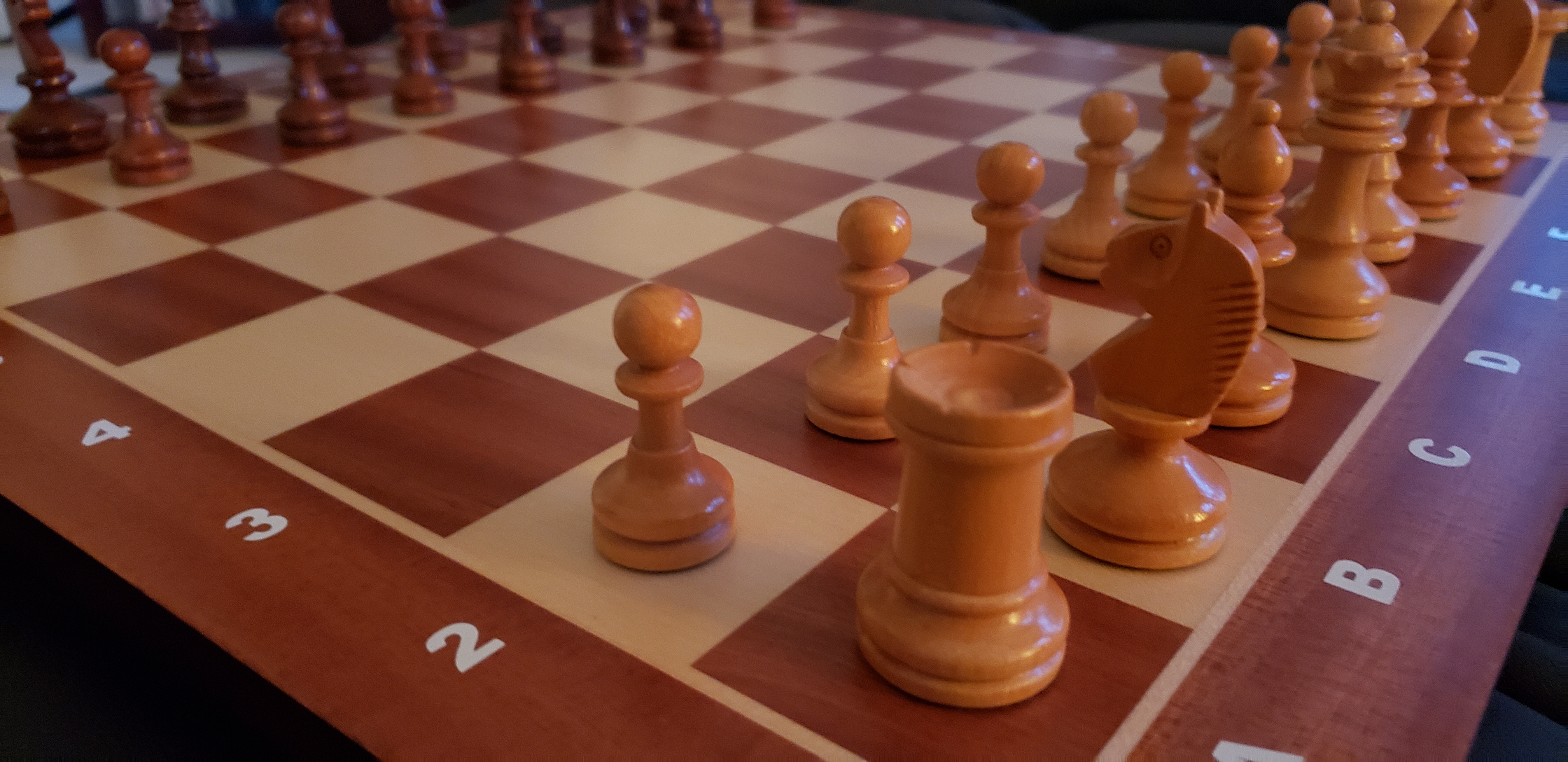In the world of competitive chess, sportsmanship stands as a pillar of integrity and respect. While the game’s competitive nature often pushes players to their limits, maintaining good sportsmanship is a hallmark of a true chess champion. Proper chess etiquette ensures fair play, mutual respect, and an enjoyable experience for both players.
Because last week’s settlement in the infamous Niemann-Carlsen was announced. It was good timing to talk about sportsmanship, and I pushed this blog post, planned for two weeks from now, to this week. To close out on Niemann vs Carlsen case, one statement I like to make:
Kudos to Hans Niemann for his perseverance and determination in seeking a resolution through the legal process. Players must be given the opportunity to clear their names and move forward in their chess careers without the shadow of false accusations hanging over them. Great sportsmanship from Hans because this is far from the apology he deserved.
The recent resolution of the Niemann - Carlsen case underscores the significance of sportsmanship in chess, especially in correspondence play, where you meet at a virtual chess board.
In this blog post, we’ll delve into the realm of sportsmanship, focusing on correspondence chess and my personal experience. We’ll explore why sportsmanship is crucial and examine positive and negative examples. Additionally, we’ll highlight two instances of contrasting sportsmanship, each supported by stories of my games, one shared to replay to gain deeper insights. And, take it or not, my personal rule of thumbs how to communicate.
The Essence of Sportsmanship in Chess
Chess is not merely a battle of wits; it’s a game that demands concentration, strategy, and mental fortitude. Amidst the pursuit of victory, upholding sportsmanship is vital. It embodies the ideals of fairness, respect for opponents, and graciousness in victory and defeat.
And it has a long history. Did you know that in the 19th century, a chess player needed to take a sacrificed piece? Declining the sacrifice was lousy sportsmanship and disrespect. Also, you might have seen at the beginning of over-the-board tournaments chess players adjust the pieces accordingly. Adjusting the position of all chessmen not only helps to focus but also shows respect for the game and the opponent by ensuring that the board is neat and orderly.
These values are equally significant in correspondence chess despite the virtual distance between players.
Proper chess etiquette ensures fair play, mutual respect, and an enjoyable experience for both players. Players are expected to act courteously towards their opponents and maintain a high standard of courtesy, sociability, and good fellowship in their contact with other members. They are also expected to respond promptly to all chess correspondence and complete their games. In US Chess Federation correspondence chess games, players may consult chess books and periodicals but not other players, and they cannot use computer programs or chess-playing algorithms to evaluate a move.
Recording Moves Accurately: A Matter of Integrity
One of the most common mistakes players can make in correspondence chess is recording moves wrongly. It happened to me three times over the last three years. One reason is you play many games in parallel with similar openings or reach similar positions due to opening transposition, which occurs when a sequence of moves leads to a position that is more commonly reached by a different move order.
Whether you’re playing via postcards in the old-school style or via email in the digital age, accurate move recording is essential. According to the US Chess Correspondence Chess Rules, players are responsible for knowing the rules and making legal moves. If an illegal move is made, the opponent can claim a win by forfeit. However, if the opponent does not notice the illegal move and replies with a legal move, the game continues as if the illegal move had been legal.
This rule underscores the significance of precise move recording. It’s not just a matter of following the rules but also a matter of sportsmanship. Even though you may have the opportunity to claim a win due to an opponent’s mistake, the courteous and honest thing to do is to inform your opponent of the mistake and ask for their consent to correct the move. While the rules do not require this, it reflects a high standard of sportsmanship.
Exemplary Sportsmanship:
Let’s begin with an example that showcases exceptional sportsmanship. In this game, I played the first time Ed Krickel engaged in a correspondence match that exemplifies respect, fair play, and mutual appreciation for the game. The players’ conduct throughout the game embodies the true essence of sportsmanship, reminding us of the virtues that make chess a genuinely noble pursuit.
The game was highlighted in Check is in the Mail, August 2021:
Although the result was a draw, in reality, it was anything but! Check out Egbert’s outstanding feint and combination to close out the game! For the full effect, though, please change 37. Be3 to 37. Be5. There was a miscommunication with this move. Egbert had recorded Be3, enabling the tremendous combo, but Ed had recorded Be5, rendering the combination disastrous. As Egbert noted when submitting this game, Ed graciously agreed to a draw as a result.
I met Ed later multiple times at the board, and my highest respect for the way he interacted with me the first time and gave me - as a newbie - guidance to this format continued. And, of course, I was giving back in a different section of this tournament, when he mixed up the two games we played in parallel and submitted a wrong move, which could have counted because it was not an illegal move.
Don’t get me wrong; this is not generosity as an example - even not playing seriously there - on Lichess, I never accept a takeback.
When Sportsmanship Takes a Back Seat
Conversely, it’s crucial to recognize instances where sportsmanship takes a back seat. I wrongfully noted move 18 on April 28th, 2023 in the Electornic Knights Semi-Finals. My opponent informed me about the situation on July 28th, 2023, with his then move 28. And claimed the then-made move as legal:
Looks like you had a record keeping error on your end. Record keeping is the responsibility of each player; It’s your move.
Due to this fact, my Q was gone. You can speculate saying nothing was intentional, but that’s not the most significant back seat for me, but the lack of communication and respect.
Other than sending move reminders, I have yet to hear back from him, including reporting the game result, where you -in good sportsmanship faith- always CC your opponent.
I resigned from the game to maintain my fair play and sportsmanship principles.
My rule of thumb is simple:
- As a player, open communication, respect for the rules, and sportsmanship are crucial aspects of correspondence chess. When I notice an error in my opponent’s recording, I immediately communicate with my opponent and rectify the mistake promptly
- Propose potential paths to address this matter fairly:
- Consider the game a draw if the mistake is way back in time. Since a recording error can have significant consequences, this decision would uphold the integrity of the game.
- Replay the game from the move where the mistake was made. By starting over, we can ensure a fair contest without any unintended advantages or disadvantages.
The same happend recently when the mistake was immidiatly recognized by my opponent:
Per the attached, my last move was 41…Rb4 and not 41…Kb4.
Your move 42. Rb8+ is a legal and binding move. Missing or mistaken announcement of check, capture, or “e.p.” does not invalidate a move.
And made the next move, turning a dead draw game into a win. Of course you can do this and have the right to do so. Once your opponent has replied to your move, you cannot change it.
I called it a day and resigned from the game, losing my lead in the Electronic Knights Semi-Finals, but maintain my fair play and sportsmanship principles. Needless to say, I have yet to hear back from him.
Conclusion
Sportsmanship is the heart and soul of chess, transcending the boundaries of physical and virtual play. In correspondence chess, where players communicate moves across time and space, respect, fairness, and graciousness gain new dimensions. As we continue to sharpen our skills and immerse ourselves in the game’s intricacies, let us always remember that being a true chess champion involves mastering the moves and embodying the spirit of sportsmanship.
Remember, how we play the game reflects who we are as players and individuals. Let’s make every move count, not just on the board but also in our conduct as sportspeople.
In the world of chess, as in life, we may encounter instances where sportsmanship takes a back seat. But, as we navigate these challenges, let’s keep in mind one important truth: “Don’t let the bad examples hide the 99% of great players you meet.” 🙌
So, whether engaging in a correspondence match or sitting across from an opponent, virtual or physical, remember the lessons learned from admirable and regrettable moments. Let sportsmanship be your guiding light, shaping you into a better chess player with great sportsmanship skills.
Amici Sumus
Please subscribe



.png)






